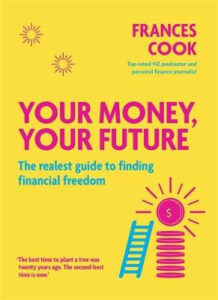
Written by R.A.Stewart
In 2008 during the Global Financial Crisis, a company I had money invested in went bust. I had close to 7 grand invested in it but my initial investment was 5k. The interest rate the company offered investors was higher than what you would receive if investing for a fixed term with the banks.
I had smaller amounts invested in other companies which went bust.
The company had assets in property and I thought that at least they had assets which could cover the loan if they ever went bust. Problem was, their assets were worth less than their liabilities.
It reminds me of the 1987 sharemarket crash, also known as “Black Monday” when investors borrowed money using the value of their shares as collateral and as the value of shares increased investors were able to borrow even more.
That is until the crash when the value of their portfolio was worth less than the money owing on them.
A guy I worked with told me that he had mortgaged his house to purchase shares and was left with a debt which at that time will take years to pay off.
There are several ways in which people respond to financial setbacks such as those that have been described. Here are three:
- Stop investing in the markets
Some people who got their fingers burnt during Black Monday, stopped investing at all and just left their money in an ordinary savings account. These people may have avoided future share market shocks but they have also missed out on the market rises. Savings which are just left in a personal bank account will lose money if it is left there for any length of time when you consider the effect of inflation and taxation.
- Blame Others
During the Global Financial Crisis (GFC), a lot of investors lost money that they had invested in finance companies. A few had their entire life savings invested in some of these companies. Many blamed those in charge of the company for it going under. Not one of those who were interviewed by the TV reporter who covered their meetings took responsibility for their situation or even admitted that they made an error in placing all of their eggs in the one basket. Why did they not diversify their portfolio in order to minimize the risk of losing everything in one hit. Placing all of your eggs in the one basket is just like going to the races and putting all of your money on the one horse. It is easy to be upbeat when things are going well, but try getting along with someone who has taken a heavy loss.
When choosing where to invest, the question one has to ask is, “How will the loss of this money affect my lifestyle?”
Greed gets the better of some people, so much so, that they ignore all of the telltale warning signs.
Financial experts warned investors about the risks of investing in financial companies which offer high interest rates, saying, “The high interest rates do not reflect the risk investors are taking with their money.”

- Learn from the experience
Then you can take it on the chin and accept that you made an error of judgement. Experience is an expensive teacher but you have to invest in order to gain experience and become financially literate. It is important to get over the fear of loss when investing for the long term. If you are investing for the short term such as for next summer’s vacation or for a car then you may want to invest conservatively.
The question that needs to be asked is, “How will the loss of this money affect my lifestyle?”
When I say loss, I mean if the share market drops by 5% or more. You lose only if you sell your shares. A 5% drop in the market is not a problem for those investing for the long or medium term.
The only way to get experience is to invest. Experience is your best teacher; this applies to any job or activity which you undertake. You will make mistakes; don’t beat yourself up or blame others; learn the lesson and take that into your future decisions.
About this article
This article may not be applicable to your personal circumstances, therefore discretion is advised. You may use this article as content for your blog/website or ebook.
Read my other articles on www.robertastewart.com


























